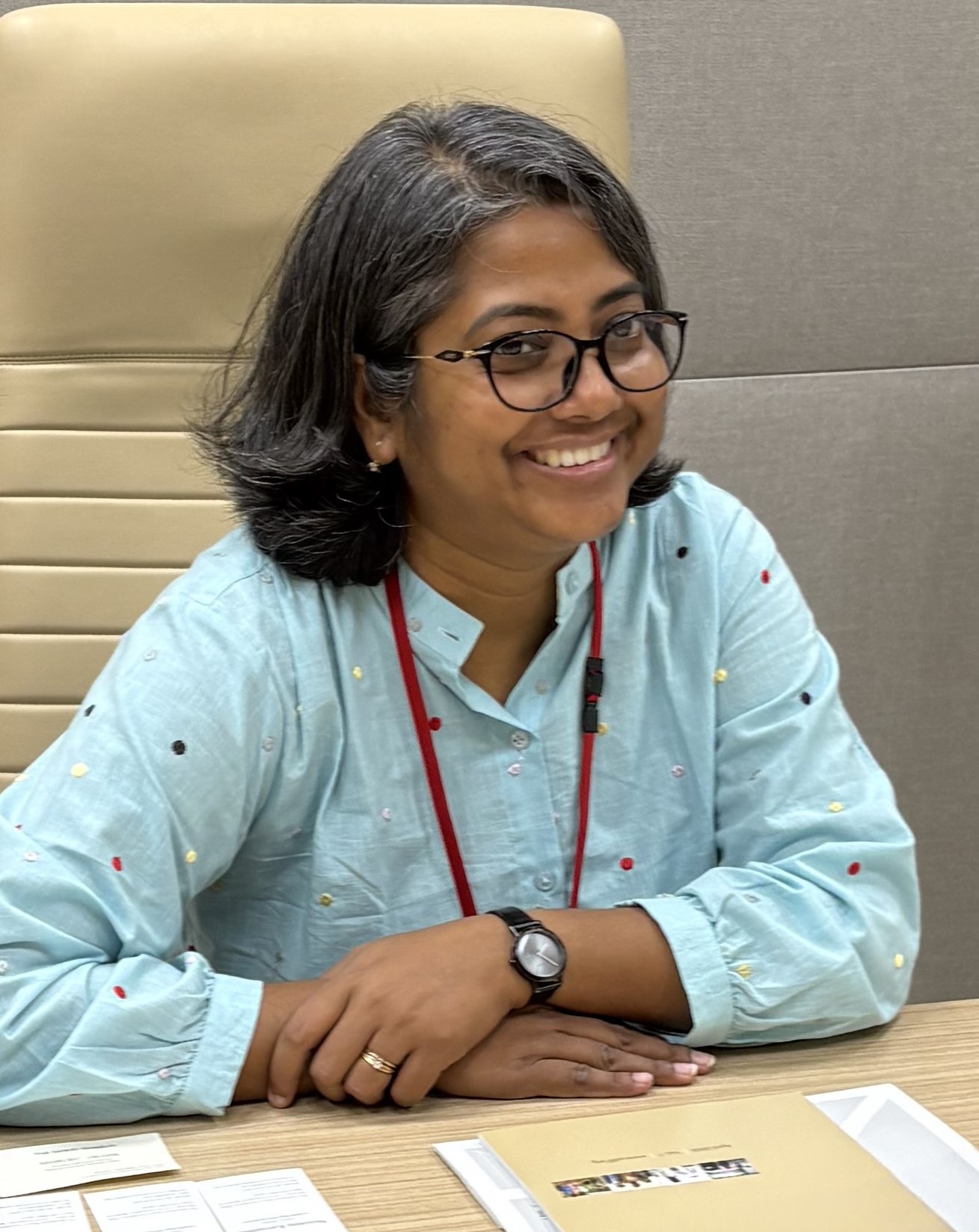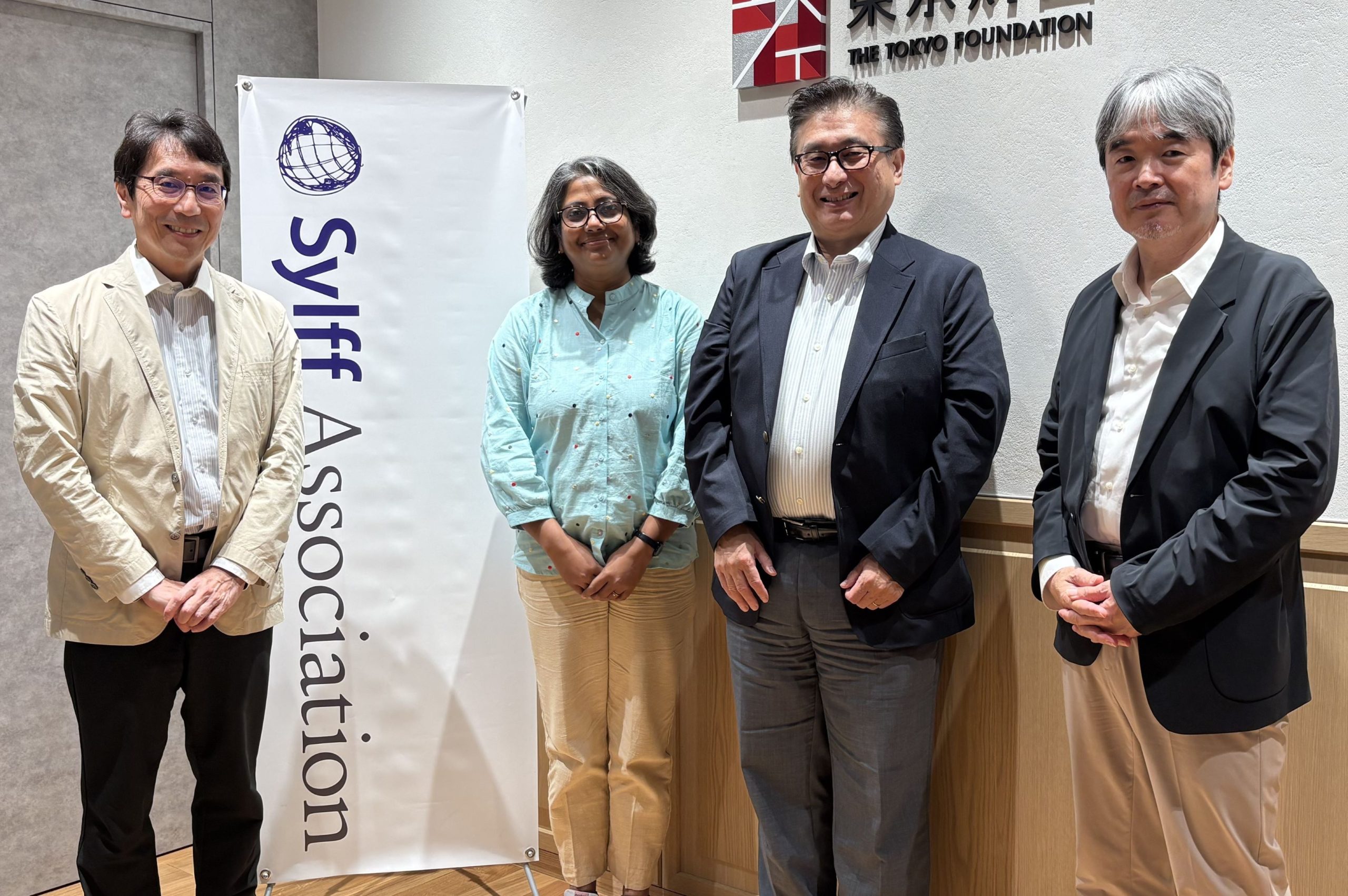Sylff News
Sep 29, 2025
Jadavpur Fellow Examining Policy Paths to Sustainability: Sylff@Tokyo
 On September 19, 2025, the Sylff Association secretariat was pleased to welcome Shyamasree Dasgupta, a Sylff fellow at Jadavpur University, during her visit to Japan for the annual Balaton Group Meeting—an international gathering of leading sustainability experts.
On September 19, 2025, the Sylff Association secretariat was pleased to welcome Shyamasree Dasgupta, a Sylff fellow at Jadavpur University, during her visit to Japan for the annual Balaton Group Meeting—an international gathering of leading sustainability experts.
The secretariat had met Dasgupta on several occasions at Jadavpur University, but this marked her first visit to Japan. The Balaton Group—also convening in Japan for the first time—held its meeting from September 21 to 26 in the picturesque highland town of Kiyosato, northwest of Tokyo. The theme of this year’s discussion was “A Changing Climate for Disaster Risk Reduction.”
Dasgupta was selected as a Donella Meadows fellow by the Balaton Group in 2012. She also currently serves as an associate professor in the School of Humanities and Social Sciences at IIT Mandi, India, where her research focuses on energy economics and climate change. “I look into industrial energy use, particularly in India, and how industries respond to different sustainability policies introduced by the government.” In addition, she explores climate change adaptation and the strengthening of socioeconomic pillars to create resilience against climate change.
Located in the Himalayan region, Mandi is part of a prestigious network of 23 Indian Institutes of Technology (IITs) established to foster scientific and technical education and advanced research. “The schools in the IIT system believe that you can’t work in silos. That’s why we don’t have a separate Department of Sociology, History, or Economics. We collaborate across disciplines to address complex challenges.”
One of her major interdisciplinary projects investigates the wide use of biomass as cooking fuel in India, which has been linked to indoor air pollution and health risks, especially for women and children. “We want to understand why people choose biomass, assess the health effects, and estimate the cost of mitigating the problem.”
Dasgupta credits her Sylff fellowship at Jadavpur—awarded during her MPhil studies in 2009 and again from 2011 to 2014 while working for her PhD—with providing a very strong grounding in interdisciplinary research.
“The Sylff program at Jadavpur is very open in nature and is an excellent platform for interaction. It’s also very rigorous and serious business for the fellows. We’re required to attend Progress Review Workshops every three months and make presentations in front of our mentors. If five people were giving presentations, then there’ll be five professors from different disciplines, and everybody will comment on your work. This feedback from many different angles was really helpful.”
She added, “It was very intense, but it prepared us well for our subsequent careers. We get the emails of all new fellows, and we still keep in touch with each other. The Sylff network at Jadavpur remains very strong.”
 The Sylff Association secretariat is proud of Dasgupta’s ongoing contributions to sustainability in India and beyond. We warmly welcome all fellows and steering committee members to visit us during their time in Tokyo. (Compiled by Nozomu Kawamoto)
The Sylff Association secretariat is proud of Dasgupta’s ongoing contributions to sustainability in India and beyond. We warmly welcome all fellows and steering committee members to visit us during their time in Tokyo. (Compiled by Nozomu Kawamoto)